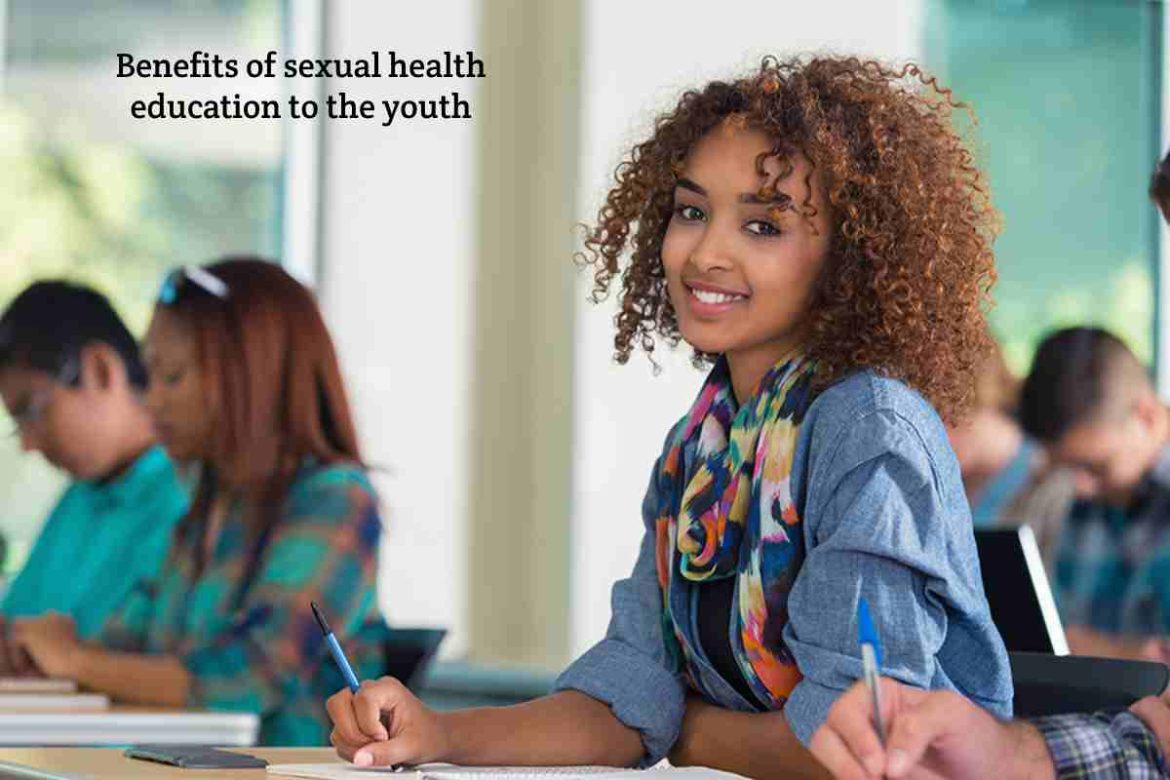Benefits of sexual health education to the youth – As young grow up, they tend to face difficult and important decisions about sexuality, sexual behaviors, and relationships. These decisions can impact their health and well-being positively and negatively for the rest of their lives.
Youths deserve to live healthy lives, and society is responsible for giving them comprehensive sexual health education to allow them access to tools they can use to make informed sexual health decisions.
In this post, we define and explore the benefits of sexual health education to the youth for effective relationships and sexuality decisions throughout their lives. Read on for more.
What is sexual health education?
Sexual health education is a teaching system that provides young people with the skills and knowledge to help them stay healthy and avoid sexually transmitted infections, HIV, and unplanned pregnancies.
This form of education encompasses medically accurate, culturally relevant, and developmentally appropriate content and skills that focus on promoting healthy sexual development and important behavioral results.
Sexual health education is age-appropriate and designed across all age groups to give information about risky sexual behaviors and experiences.
Characteristics of quality sexual education include the following:
- They are taught by highly-trained and qualified staff.
- Apply relevant and engaging strategies for young people.
- Address all the sexual needs of young people, such as the need to be gay, lesbian, transgender, and bisexual.
- Engage families, parents, and the entire community in their programs.
- Connect young people to sexual health services in the community and schools.
- Cultivates positive relationships between adults, adolescents, and the community.
Benefits of sexual health education to young people.
Sexual health education, together with the support of parents, families, and society, can have multiple benefits, including:
Avoiding negative sexual consequences.
In the United States alone, around 75,000 teens get pregnant, with more than 82% of these being unintended pregnancies. What’s more, teens between 15 to 24 years account for 24% of new HIV infections yearly, making up to nearly one-half of the 19 million new STD infections in America every year. Young people should know more about STDs such as chlamydia and how chlamydia discharges, HIV or herpes.
Having effective sexual health education can make young people learn the skills to protect themselves and avoid these negative consequences.
Giving information about sexual health and sexuality.
People communicate with their families, friends, intimate partners, and parents about sexuality throughout their lives. Learning to have free and open discussions about condoms and contraception as well as other sexual activities above their ages protects teens’ health in their current and future lives.
Quality health education insists on abstinence as the only sure way of avoiding STIs, HIV, and unwanted pregnancies-and as the only perfect choice for people to make. Most of the sex education has been proved to delay sexual intercourse or minimize sexual activities among sexually active teens.
Understand healthy and unhealthy relationships.
Maintaining a healthy and safe relationship needs skills that most young people do not possess. These skills include positive communication, negotiation, and decision-making around sexual activity.
Without these skills, young people can experience violent and unhealthy relationships. In fact, statistics show that one in every ten teens has had physical violence with a partner over the past year.
These cases can be avoided through effective sex education, which focuses on effective ways to solve conflicts in relationships and identify healthy and unhealthy relationships patterns.
Understand, value, and have autonomy over their bodies.
Sexual health education not only concentrates on puberty and adolescence but also teaches youths that they got a right to choose what kind of behaviors they engage in and the right to say no to unnecessary sexual activity. Also, it helps young people to identify forces that lead to positive or negative sexual behaviors.
Respecting other people’s bodies and decisions.
Most young people have been forced into sexual intercourse, and a good number of them have confessed to committing sexual violence.
With the right sexual health education, youths learn the causes of sexual violence, understand that it is wrong, and the possible ways to end it and get help if they are assaulted.
Protect their academic performance and success.
Poor sexual health decisions can affect students’ academic success. Different studies by CDC have found that students who do not involve in health risk behaviors achieve higher grades and are more successful academically than those who engage in high-risk sexual behaviors.
Unwanted pregnancies and health-related behaviors can all lead to absenteeism and school dropouts.
Conclusion.
Young people have a right to healthy living throughout their lives. As they grow and meet difficult sexual health decisions, we want them to have skills that may help in the future. Therefore, sexual health education is highly needed regardless of its myths.
Sexual health education has the following benefits to youth, it prevents negative sexual consequences, give discuss unhealthy and healthy relationships, enables them to understand and value the autonomous body, respect other, and succeed academically, among others.


